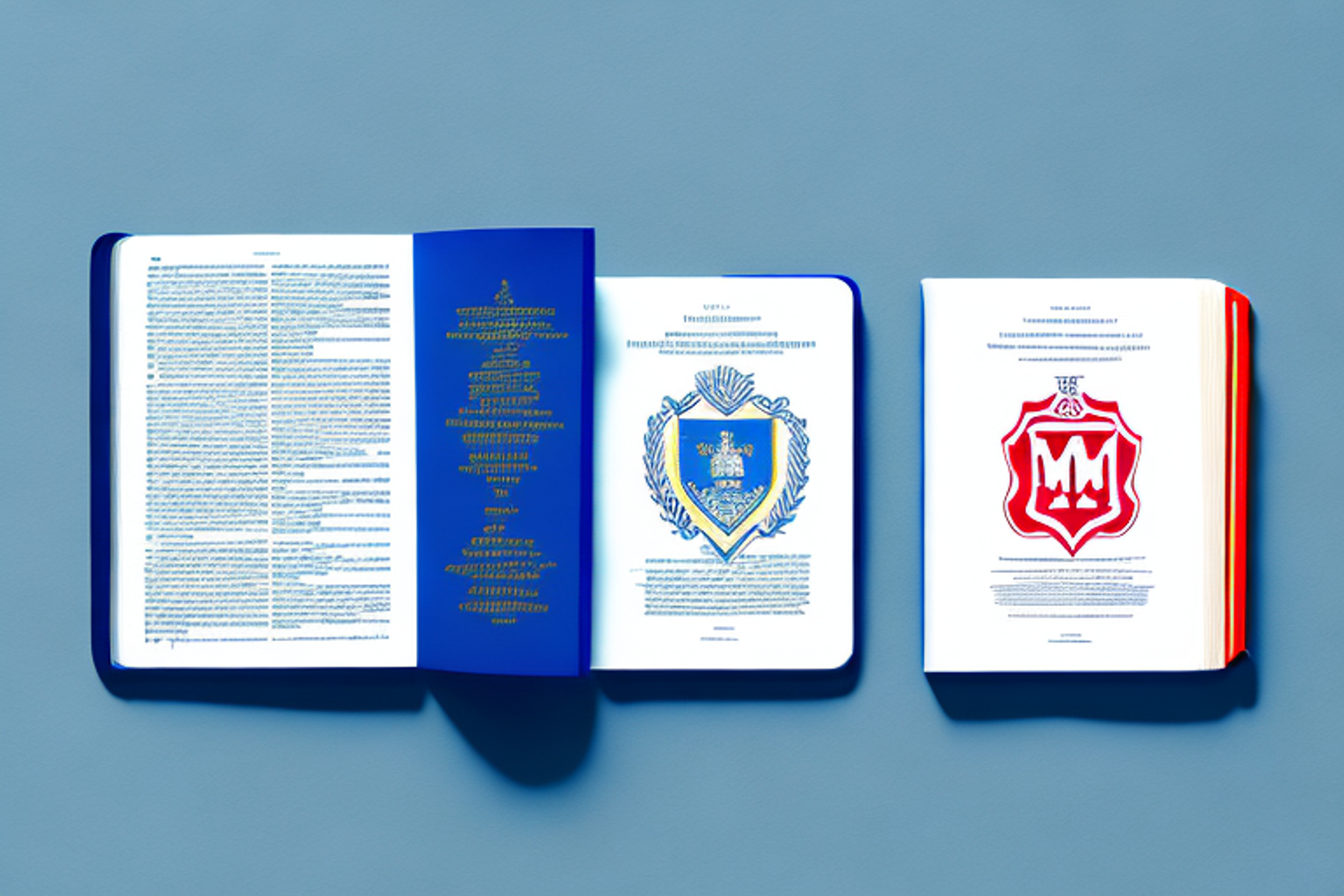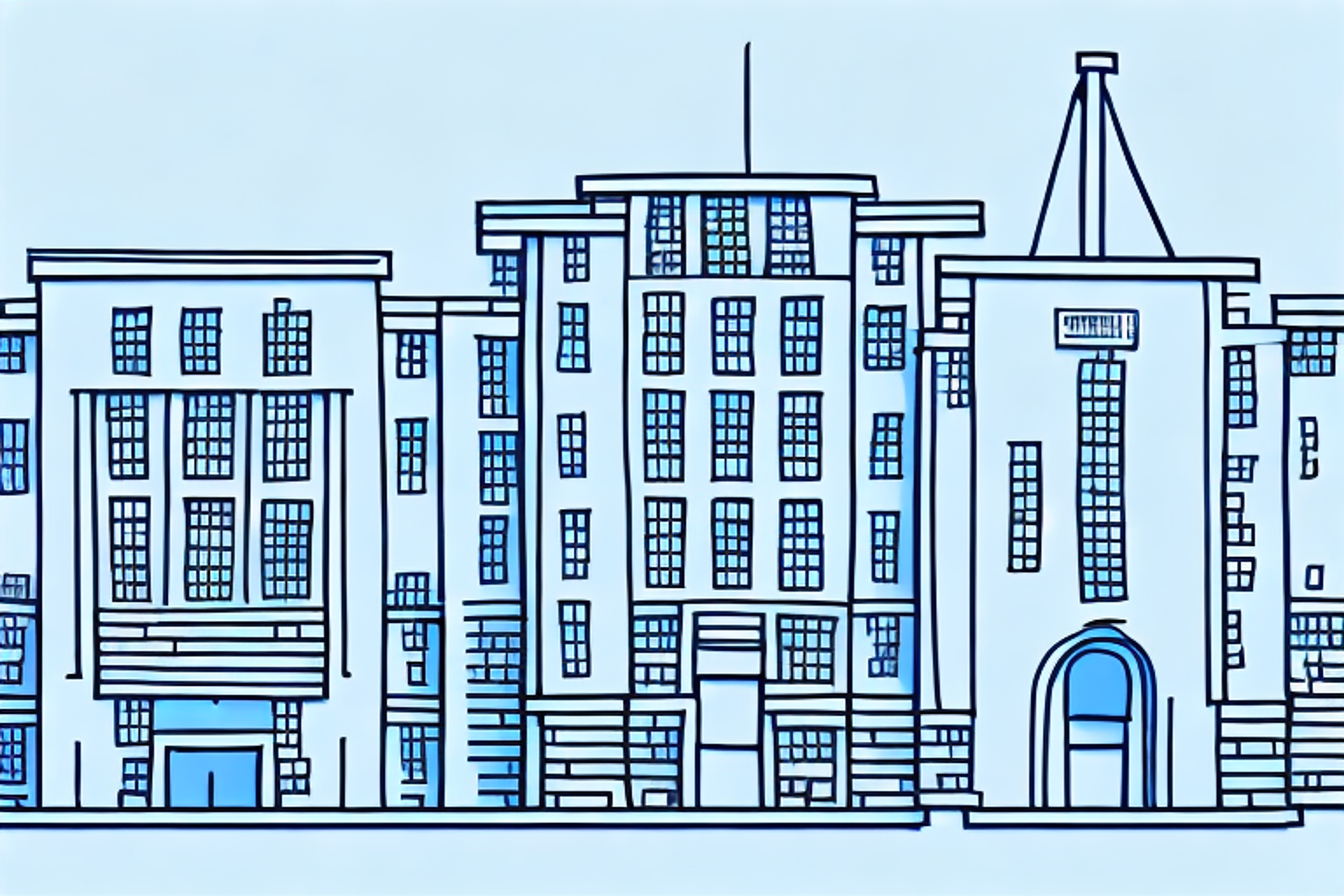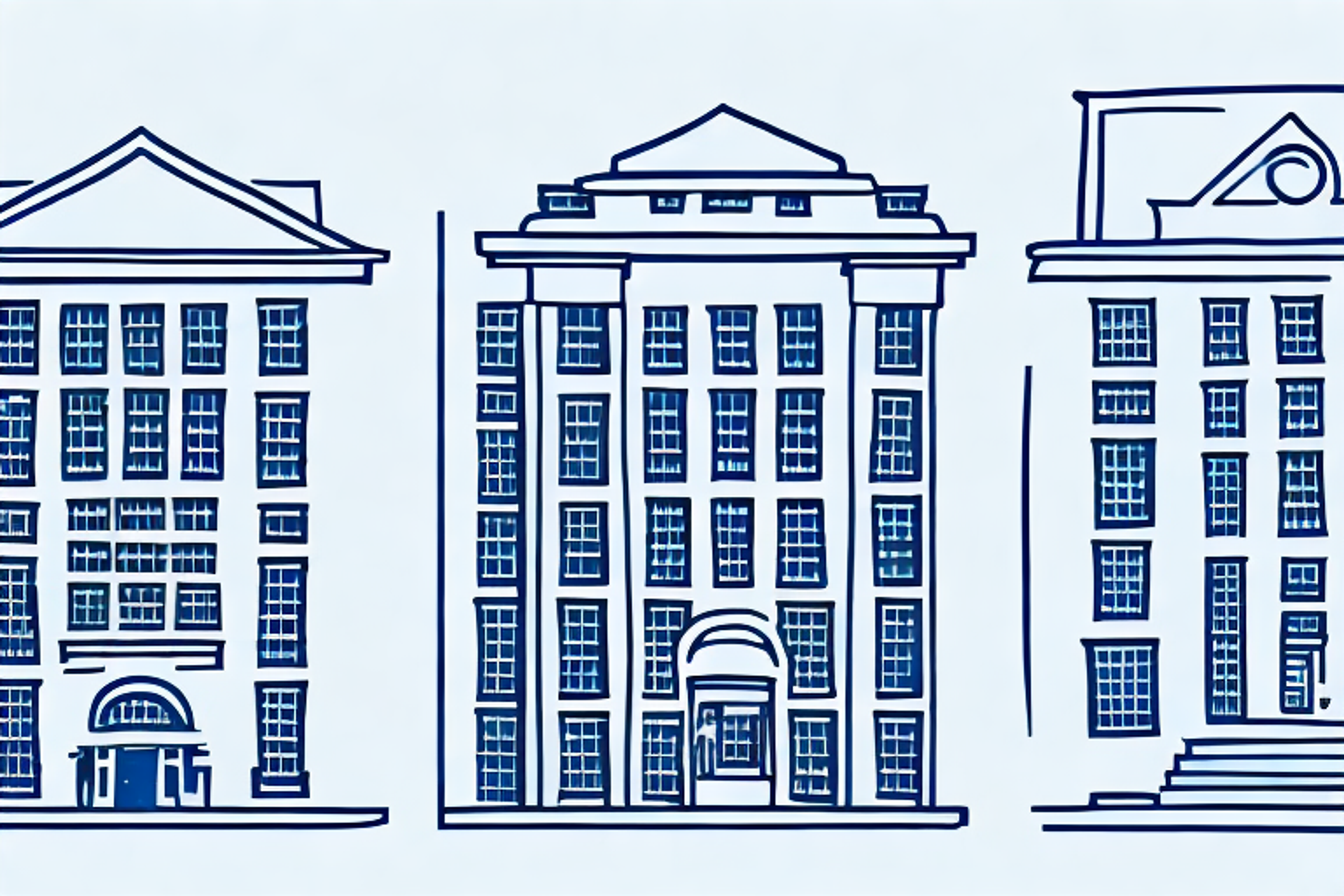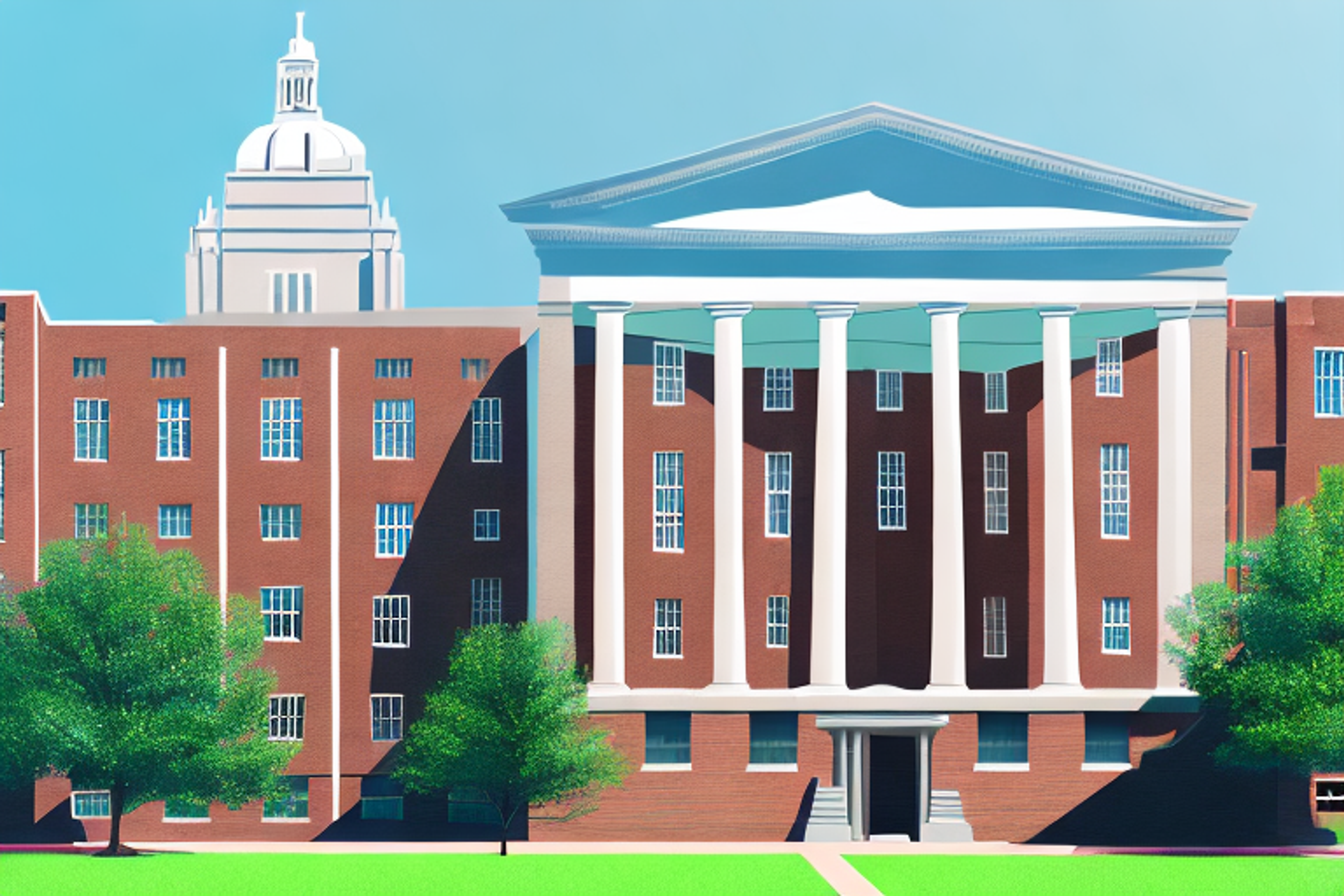Cornell Law School Vs. Georgetown University Law Center: An In-Depth Comparison
Are you considering pursuing a law degree but can't decide between Cornell Law School and Georgetown University Law Center? Look no further! Our in-depth comparison explores the similarities and differences between these two prestigious institutions, helping you make an informed decision about your future in law..
Posted March 6, 2025

Table of Contents
Free Event

Featuring Indrani S.
Law School Admissions: What to do when you are waitlisted
Starting Tuesday, April 8
11:30 PM UTC · 60 minutes

Featuring Indrani S.
When it comes to choosing a law school, there are countless options available. However, Cornell Law School and Georgetown University Law Center stand out as two of the top-ranked institutions in the United States. In this article, we will delve into the similarities and differences between Cornell Law School and Georgetown University Law Center, and help you determine the best fit for your individual needs and career aspirations.
Introduction: Understanding the Importance of Choosing the Right Law School
Choosing the right law school is a crucial step in determining the trajectory of your law career. It’s important to consider criteria such as the reputation of the school, the quality of faculty and resources, the curriculum, student life, and career prospects. By comparing Cornell Law School and Georgetown University Law Center in each of these categories, you can make an informed decision about the best option for your future.
One important factor to consider when choosing a law school is the location. The location of the law school can have a significant impact on your overall experience and career prospects. For example, if you want to practice law in a specific region, attending a law school in that region can provide you with valuable networking opportunities and connections. Additionally, the cost of living in the area can also affect your decision, as it can impact your overall expenses and financial burden. Therefore, it’s important to research and consider the location of the law school when making your decision.
History and Background of Cornell Law School and Georgetown University Law Center
Cornell Law School was founded in 1887 and has a long-standing reputation as one of the leading law schools in the nation. It is located in Ithaca, New York and boasts an impressive list of notable alumni, including Supreme Court Justice Ruth Bader Ginsburg. Georgetown University Law Center, on the other hand, was founded in 1870 and is located in Washington, D.C. It is recognized as one of the oldest and most prestigious law schools in the United States, with alumni such as former U.S. president Bill Clinton.
Despite their differences in location and age, both Cornell Law School and Georgetown University Law Center share a commitment to providing their students with a rigorous legal education. Cornell Law School is known for its emphasis on practical skills training, with opportunities for students to participate in clinics and externships. Georgetown University Law Center, on the other hand, is renowned for its focus on public interest law and social justice, with a variety of programs and initiatives aimed at promoting access to justice for all.
Both law schools also have a strong tradition of scholarship and research. Cornell Law School is home to several research centers and institutes, including the Cornell Center on the Death Penalty Worldwide and the Clarke Program in East Asian Law and Culture. Georgetown University Law Center, meanwhile, is known for its expertise in areas such as international law, human rights, and constitutional law, with faculty members who are frequently called upon to provide expert commentary on current legal issues in the media.
Admissions Processes: How to Get into Cornell Law School and Georgetown University Law Center
The admissions process for both Cornell Law School and Georgetown University Law Center includes a thorough review of academic transcripts, LSAT scores, letters of recommendation, personal statements, and extracurricular activities. Cornell Law School has a 21.6% acceptance rate, while Georgetown University Law Center has a slightly higher acceptance rate of 25.7%. Both schools aim to enroll students who will thrive in their programs and contribute significantly to the legal profession.
One factor that may differentiate the admissions process at Cornell Law School and Georgetown University Law Center is their approach to interviews. Cornell Law School offers interviews to a select group of applicants, while Georgetown University Law Center does not typically conduct interviews as part of their admissions process. However, both schools place a strong emphasis on the personal statement, which allows applicants to showcase their unique experiences and perspectives.
It is also worth noting that both Cornell Law School and Georgetown University Law Center offer a variety of resources to support their students throughout their legal education. These resources may include career services, academic support, and opportunities for experiential learning. Prospective students may want to consider these resources when evaluating which law school is the best fit for their goals and interests.
Curriculum: Comparing the Courses Offered at Cornell Law School and Georgetown University Law Center
The curriculum at Cornell Law School is well-rounded, offering courses in a wide range of legal topics including business law, constitutional law, criminal law, and intellectual property law. Georgetown University Law Center is commendable for specializing in international law, business law and criminal law. Students at both schools have the ability to pursue a variety of elective courses and critical thinking opportunities that will prepare them for a successful career in law.
However, there are some differences in the curriculum between the two schools. Cornell Law School places a strong emphasis on legal writing and research skills, with required courses in legal research and writing in the first year. Georgetown University Law Center, on the other hand, offers a wider range of clinical programs, allowing students to gain practical experience in areas such as immigration law, domestic violence, and civil rights. Both schools offer unique opportunities for students to specialize in their areas of interest and gain valuable skills for their future legal careers.
Faculty: Analyzing the Professors at Cornell Law School and Georgetown University Law Center
The quality of faculty at Cornell Law School and Georgetown University Law Center is exceptional. Both schools employ top legal scholars and experienced practitioners in a variety of legal fields. The faculty at Cornell Law School has a strong reputation for their research and expertise in fields like intellectual property and corporate law, while Georgetown University Law Center boasts top legal minds in the areas of international law, business law and public interest law.
In addition to their impressive credentials, the faculty at both Cornell Law School and Georgetown University Law Center are known for their dedication to teaching and mentorship. Many professors at these institutions are actively involved in student organizations and provide valuable guidance to students pursuing careers in law. Furthermore, both schools prioritize diversity and inclusion in their hiring practices, resulting in a faculty that reflects a wide range of backgrounds and perspectives.
Student Life: What to Expect at Cornell Law School and Georgetown University Law Center
The quality of student life is a crucial aspect to consider when selecting a law school. Cornell Law School offers a tight-knit community feel with academic and social events throughout the year like moot court competitions and legal debates. Georgetown University Law Center has a reputation for its vibrant urban setting, allowing students to engage in the activities and events in D.C. and have access to internships and clerkships at world-renowned organizations.
Aside from academic and social events, Cornell Law School also offers various opportunities for students to engage in pro bono work and community service. The school has a Pro Bono Program that connects students with local organizations and provides them with hands-on legal experience while giving back to the community. Additionally, Cornell Law School has a strong alumni network that provides mentorship and career guidance to current students.
Georgetown University Law Center also offers a diverse range of extracurricular activities for students to get involved in. The school has over 100 student organizations, including the Georgetown Law Democrats and Republicans, the International Law Society, and the Women's Legal Alliance. These organizations provide students with opportunities to network, develop leadership skills, and explore their interests outside of the classroom. Georgetown Law Center also has a robust career services office that offers career counseling, job search resources, and networking events to help students achieve their career goals.
Career Prospects: Employment Rates for Graduates of Cornell Law School and Georgetown University Law Center
Both Cornell Law School and Georgetown University Law Center have strong job placement rates. Cornell Law School reports a 96.5% employment rate for 2020 graduates with a median starting salary of $190,000. Georgetown University Law Center reports a 90% employment rate for 2020 with a median starting salary of $180,000. It’s important to note that both schools have a strong network of alumni, and this can play a significant role in career success post-graduation.
In addition to their high employment rates and strong alumni networks, both Cornell Law School and Georgetown University Law Center offer a wide range of career services to their students. These services include career counseling, job fairs, and networking events with legal professionals from various industries. Students also have access to online job boards and databases that provide information on job openings and internships.
Furthermore, both schools have specialized programs that prepare students for specific legal fields, such as intellectual property law, environmental law, and international law. These programs provide students with the knowledge and skills necessary to succeed in their chosen field and increase their chances of finding employment in that area after graduation.
Campus Facilities: Examining the Resources Available at Cornell Law School and Georgetown University Law Center
Both Cornell Law School and Georgetown University Law Center offer modern, state-of-the-art facilities. Cornell Law School offers a unique setting with a studio space designed for collaborative learning, a legal clinic, and dedicated study spaces for students. Georgetown University Law Center offers seminar rooms, a law library with robust resources, and a variety of outdoor study spaces.
Tuition and Financial Aid: Evaluating the Cost of Attendance at Cornell Law School vs. Georgetown University Law Center
The cost of attending law school can be significant, and it’s important to weigh the cost against the potential return on investment. The cost of attendance at Cornell Law School is approximately $91,150, while the cost of attendance at Georgetown University Law Center is approximately $97,468. Both schools offer financial aid, scholarships, and grants to help offset the cost of attendance.
Alumni Network: The Benefits of Joining a Network of Successful Graduates
Both Cornell Law School and Georgetown University Law Center have extensive alumni networks that can be invaluable for career growth and networking opportunities. The alumni network for Cornell Law School consists of more than 13,500 members located in over 100 countries worldwide. The Georgetown University Law Center alumni network boasts more than 20,000 members around the world, with notable alumni in positions of power across the legal industry and government.
Conclusion: Which is the Better Option for You – Cornell or Georgetown?
Choosing the right law school is a complex decision that involves numerous factors. Cornell Law School and Georgetown University Law Center are both highly respected institutions, each with their own unique strengths. Depending on your personal preferences, career goals and location, make the choice that will suit you the most. No matter which school you choose, ensuring that you thrive both academically and professionally is what will take you high in your legal career.











